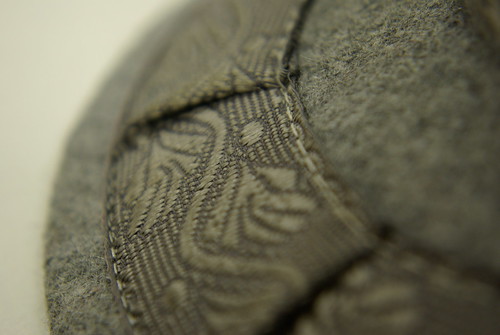I hated this book on several levels and for several reasons. And I hated the movie for many of the same reasons.
Fair warning: If you haven't read the Harry Potter book(s), there will probably be some spoilers in here.
This book was to have been the culmination of what had gone before in the series. The final resolution.
I don't mind that it broke the "Harry dodges terrible relatives and goes to Hogwarts where life is good but filled with unexpected danger," mold. To be honest, that pattern had been getting tiresome.
I am one of those rare readers who
appreciated Dumbledore's death. It demonstrated to us that even main characters weren't safe. Not only that, but his sacrifice
meant something. It wasn't like Cedric Diggory's death (which was completely pointless and really didn't make Voldemort any more frightening to me than he already was).
Likewise Harry's death. Harry realized he was one of Voldemort's horcruxes. Since the only way to get rid of Voldemort forever involved destroying all of his horcruxes, Harry's death was
important. No, make that
Important. It needs that capital letter. It was also
necessary. And
meaningful. The hero thought about his actions, and then surrendered. He allowed himself to be killed.
The limbo scene with Dumbledore? It was a cop-out. A complete waste of time.
Harry needed to stay dead, otherwise his sacrifice was cheapened. Seriously. I had been less-than-happy with the book to that point. I was
glad when Harry sacrificed himself - it was a mature decision. It was a very well-written "Good of the Many" moment.
And then he came back.
Throwing away the sacrifice.
What about the three Hallows themselves? They were a pointless side quest. They had no impact whatsoever on the story other than filling pages.
And they angered me.
"By the way, Harry, there is this legend of three great wizards ... " Yeah. Prior to this book, there was no reference whatsoever to these three extremely-powerful magical items. None. At one point, I vaguely remember one character mentioning that Harry's cloak seemed especially effective for an invisibility cloak - but it was one small reference.
They didn't mention that in the movie - Harry's cloak? The one left him by his father? It was an extremely powerful item. The Cloak belonging to the youngest brother in the story. And it saw use through the entire series, so it wasn't influenced story-wise by being one of the Deathly Hallows.
In the very first book, they start hinting that Wands choose their owners. The Great Wand of Power chooses its owner based on who defeats the previous owner. That's fine. I can buy that. It's not unreasonable. It defines "disarms" as "defeated." That ... well, it does a couple of things to the story that anger me - but, again, it's the wand's rules we're dealing with. Even though it means that Snape's death was a completely pointless waste.
Here's the thing, though:
It didn't have to be a powerful artifact to impact the story like that. Seriously. It just needed to be a more-powerful-than-usual wand that had the same rule. So - again - we didn't need that tacked-on never-hinted-at backstory about three brothers cheating Death. All we needed to know was that Dumbledore's wand was powerful, and belongs to whoever disarms its previous owner. We can keep the "defeated" confusion that led to Snape's death, if need be. And - to be even more honest - it doesn't even need to be Dumbledore's wand.
Oh - and some hint somewhere about how a wand won't allow someone to harm its rightful owner would have been a good added touch, even though the audience probably would have figured out who the rightful owner was.
As long as the characters are in the dark, it's okay for the reader to know things. And even if characters know that "my wand will never harm me," it won't impact the story: Harry didn't know that Voldemort was holding a wand which was loyal to Harry. Had he known, then the entire seventh book would have been a complete waste of good reading time.
Oh. Wait.
As to the Stone of Resurrection: it almost broke me. Let's start with the inaccurate name: The stone
didn't bring the dead back. It, instead,
allowed the living to communicate with the dead. It's not the same thing at all. Now, it's entirely possible that the stone will allow full-on resurrection. More on that in a few.
In the book, it's clear that Harry has made his mind up. He's willing to die for his friends. He uses the stone to talk to his dead family, and they offer him consolation. It's a bit like the Biblical Garden of Gethsemane in some ways - Christ is praying, and the angels offer him comfort (and his earthly friends fail him).
In the film, it looks like Harry is going to back out, and the only thing that stops him is his dead family. This made the stone more useful in the film than in the book.
So what if the Stone could resurrect the dead fully? It was pretty stupid of Dumbledore to give it to Harry, then, wasn't it? He knew a war was coming. People die in wars. He also knew that Harry had to confront Voldemort face-to-face. Imagine this: It's December 1st, 1941. You have the resurrection stone, and you know about the upcoming attack on Pearl Harbor. With the stone, every single sailor at Pearl Harbor can return to duty the on December 8th. It appears to be unlimited, too. So you can bring back soldiers and sailors over and over and over and over. And yes, they'll be disconnected and will eventually go completely mad - but you can probably deal with that after the war is over, right? You also have a young friend who Tojo is looking for (and who you know wants to face Tojo). Would you give the stone to your friend? What if you didn't tell him about it, and just stuck the stone into his pack - only you disguised it in such a way that he'd find it only after he landed on the Japanese mainland? Wouldn't that effectively be just handing the stone over to Tojo?
It's almost as though Dumbledore was actually a Death Eater ... sacrificing Harry, and handing off the Stone and the Cloak at the same time. Clever. Very clever. No-one would ever suspect.
So random Dumbledore ramblings aside, what impact did these Deathly Hallows have on the story?
None that any invisibility cloak, powerful wand, or Ouija board couldn't have handled. Making these items Powerful Artifacts, in fact, lessened their story value. Because once you introduce something like a legendary item, it becomes clear that your hero is going to wind up with some or all of them - when you're writing for a young audience, that is.
Either way, it left me very dissatisfied with both the seventh book and the films based on it.

